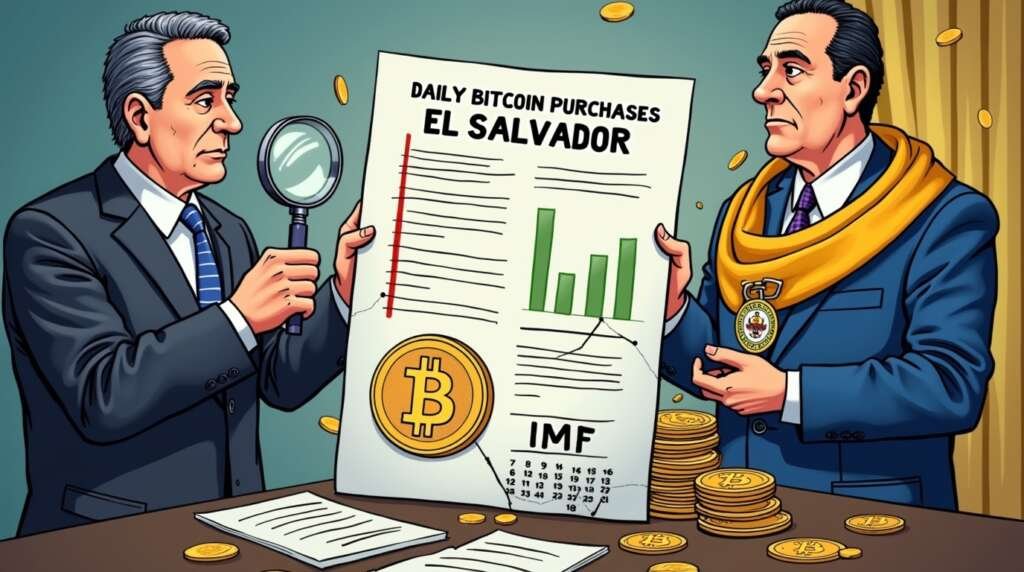The IMF’s latest report has debunked claims made by El Salvador’s President Nayib Bukele that it has bought Bitcoin since November 2022, when Bukele disclosed the initiative. The IMF’s latest review has shown contradictory figures, addressing Bukele’s claims as false.
The Bukele vs IMF face-off has been ongoing ever since El Salvador announced BTC as its legal tender. The latest contradictory report proves that Bukele’s claims are unfounded, deepening the unhealthy relationship between the two parties.
What Happened?
Bukele claimed that El Salvador has been buying Bitcoin daily since November 2022 after announcing BTC as the country’s legal tender. Bukele continuously touted that the country had continually bought BTC up till July, despite the IMF’s efforts to limit the country’s Bitcoin purchases in favor of a $1.4 billion loan. He said El Salvador wouldn’t stop buying BTC, adding that if they didn’t stop when the world ostracized them, they won’t stop now.
The country’s Bitcoin Office claims El Salvador’s Bitcoin reserves hold about 6,242 BTC worth approximately $737 million. Arkham, a Blockchain intelligence firm, also claimed it backed up the daily 1 BTC transfers, mostly from Binance or Bitfinex hot wallet addresses.
IMF Report Clarifies Bukele’s Claims
Stacy Herbert, the head of El Salvador’s Bitcoin Office, in his defence, disclosed that El Salvador continues to buy BTC in defiance of the IMF deal. However, the IMF report says otherwise. It notes recent reserve increases came from internal wallet consolidation, not new purchases, contradicting President Bukele’s claims of daily 1 BTC buys.
The IMF allayed fears that it would take action against El Salvador, stating that the increase didn’t violate the terms of the financing deal. The monetary body stated that it consulted with the authorities, who assured them that the recent increase in Bitcoin holdings in the Strategic Reserve Fund is consistent with the agreed-upon financing deal.
El Salvador and the IMF’s Contradictory Money Policies
El Salvador, a country in Central America, made the news in September 2021, when President Nayib Bukele announced the country would be adopting Bitcoin as legal tender. At that time, Bukele argued that the decision would promote financial inclusion and get the country out of its debt.
While the decision did bring some benefits, such as boosting tourism and global attention, it failed to improve the economy. Besides, many merchants struggled to adopt it due to technical issues, skepticism, and volatility, making it unpopular for many Salvadorians. The IMF opposed the decision through and through, calling it reckless and one way of plunging the country to irreversible poverty.
A 2024 survey showed that 92% of Salvadorians didn’t use BTC for transactions. The Chivo wallet, unveiled to facilitate transactions, faced technical difficulties, deepening the skepticism of Salvadorians. Currently, the country has made a shift from Bitcoin, a deal it made to get the $1.4 billion IMF loan.
Will Another Country Explore Bitcoin as a Legal Tender?
El Salvador took a great risk to experiment with Bitcoin as a legal tender that ultimately backfired. It was a case of too fast, too furious, as the government didn’t properly give the plan a thought before enacting.
Although BTC remains legal for private trade, and the government still purchases it, El Salvador may not explore the option of forcing businesses to use BTC. Of course, a change of government and policy change is possible, but not immediate.
Currently, the Central African Republic is the next country that has given Bitcoin some level of legitimacy, but the success of the program is still unknown. The United States, European, and Asian nations have completely refuted the idea of considering Bitcoin as another legal tender.




